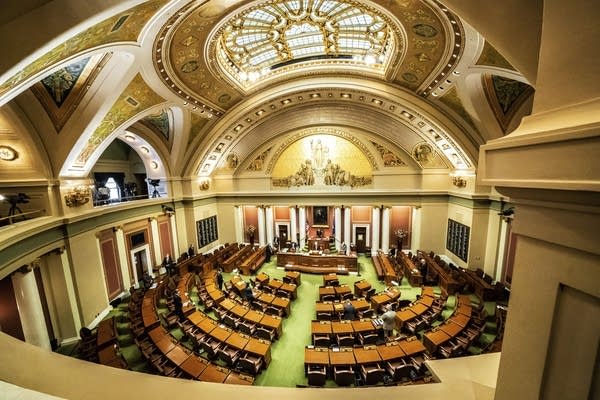Second special session starts without deal on to-do list

After an acrimonious end to a first special session, the Minnesota Legislature returns Monday for another try.
Glen Stubbe | Star Tribune via AP
Go Deeper.
Create an account or log in to save stories.
Like this?
Thanks for liking this story! We have added it to a list of your favorite stories.


